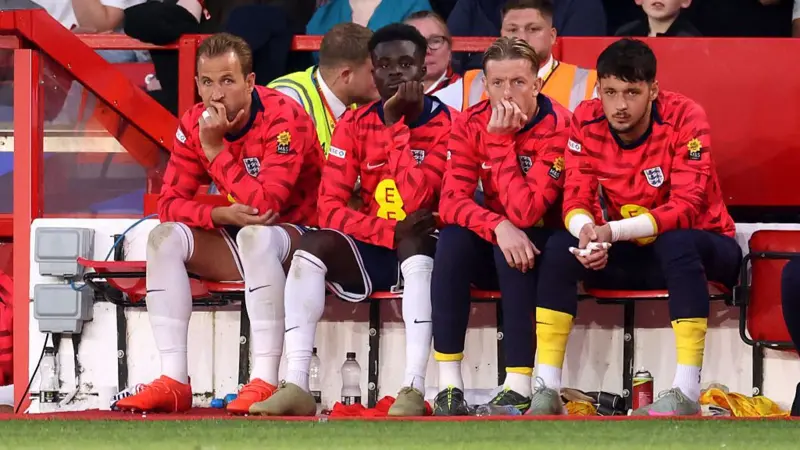England’s preparations for the 2026 World Cup took a serious knock on Tuesday night as they slumped to a 3-1 defeat against Senegal at the City Ground. In a game labelled as a friendly but played with ferocity and intensity by the visitors, Thomas Tuchel suffered his first loss as England manager—one that raised big questions about direction, leadership, and tactical identity.
Harry Kane’s early strike had given England the lead in just the 7th minute, latching onto a clever ball and firing home confidently past Senegal keeper Edouard Mendy. It was Kane’s fourth goal in as many games under Tuchel, but any early optimism quickly faded.
Ismaïla Sarr equalised just before the break in the 40th minute, slotting home after a perfectly timed through-ball from Nicolas Jackson. The Lions of Teranga went into half-time deservedly level after unsettling England with their pace, strength and pressing.
The second half brought more misery for the home side. Habib Diarra put Senegal ahead in the 62nd minute after Kalidou Koulibaly’s brilliant interception and forward surge opened up England’s midfield. Despite England showing some urgency late in the match—highlighted by a disallowed Jude Bellingham equaliser—Senegal killed the game in added time, with Cheikh Sabaly calmly finishing off a Lamine Camara assist in the 93rd minute.
The result not only marked England’s first-ever defeat to an African nation in 22 matches, but also highlighted the growing uncertainty under Tuchel’s reign. While only a friendly, the lack of cohesion, structure, and energy was stark—echoing similar criticisms from the end of Gareth Southgate’s tenure.
Post-match, Tuchel admitted the team “felt frozen” for long periods and lamented the “very easy goals” conceded. “We were more fluid and aggressive when we went behind,” he said, but acknowledged that England had failed to defend properly or find the right rhythm throughout most of the game.
His decision to make ten changes to the lineup—viewed by some as a necessary experiment—was lambasted by critics and fans alike. Former England midfielder Leon Osman argued on BBC Radio 5 Live that “tweaking the system” would’ve been better than “changing everything.”
Roy Keane, never one to hold back, said the England squad didn’t look “like a happy group,” and accused them of “waiting for something to happen” rather than taking control. Ian Wright echoed similar concerns, noting a lack of leadership and responsibility on the pitch.
Kane was blunt in his post-match comments: “Not good enough. We’ve lost that aggressive nature we used to have.” He also disagreed with the handball call that disallowed Bellingham’s goal, calling it a key moment that might have changed the outcome.
Meanwhile, Senegal captain Koulibaly was full of pride. “We made history tonight,” he said. “We showed we can play at this level. We want to keep writing the story of Senegal.”
With the World Cup just a year away, England remain top of their qualifying group, but this result is a sobering reminder of the work still ahead. A September double-header against Andorra and Serbia now takes on added importance.
Tuchel has time, but not forever. This friendly was supposed to build momentum. Instead, it’s triggered fresh doubts and fan unrest—both about his tactics and the squad’s mentality.
If England are to contend in Canada, Mexico and the U.S., performances like this must become a distant memory. And fast.



